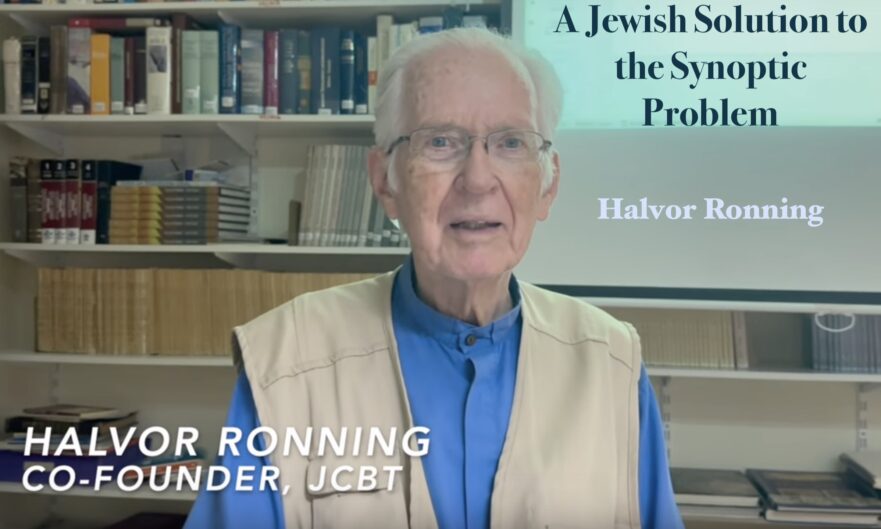Watch this two-part video lecture here.
The Sin Against the Spirit: Matt. 12:31-32; Mark 3:28-29; Luke 12:10
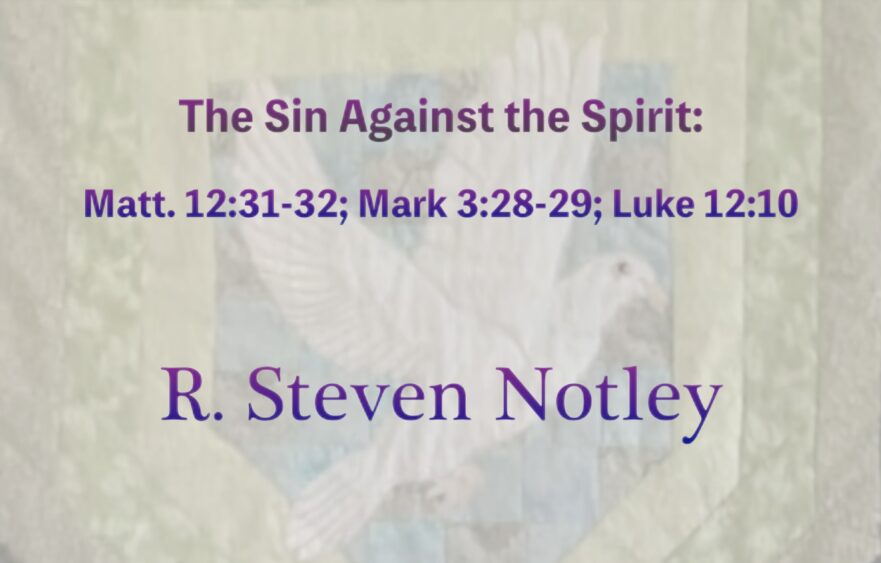
Jesus’ saying about the sin against the Holy Spirit belongs to developing Jewish ideas regarding the gradation of sin and punishment. It also reflects his high self-awareness.
The Names of Jerusalem in the Synoptic Gospels and Acts
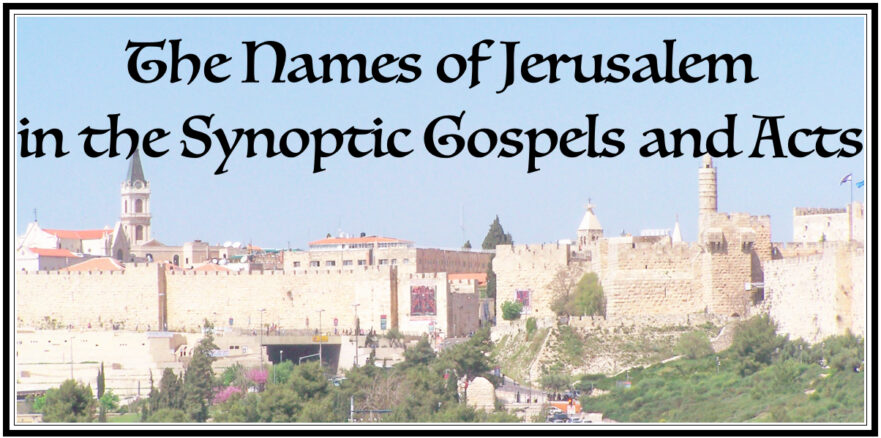
What can the Greek and Hebrew forms of Jerusalem’s name tell us either about the sources of the Synoptic Gospels and Acts or the audiences to whom these works were addressed?
What Is the Leaven of the Pharisees?
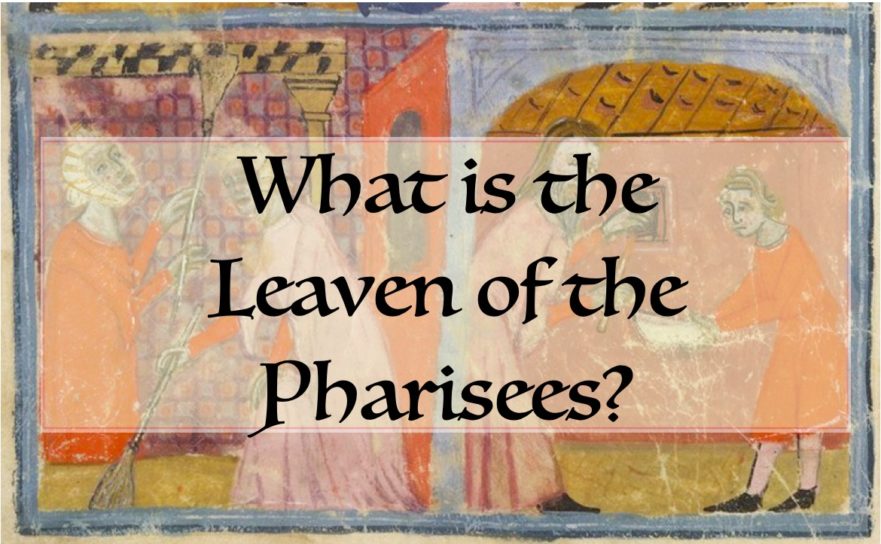
The Gospels of Matthew, Mark and Luke give three different answers. Which, if any, is original?
Three Synoptic Studies Resources Now Free
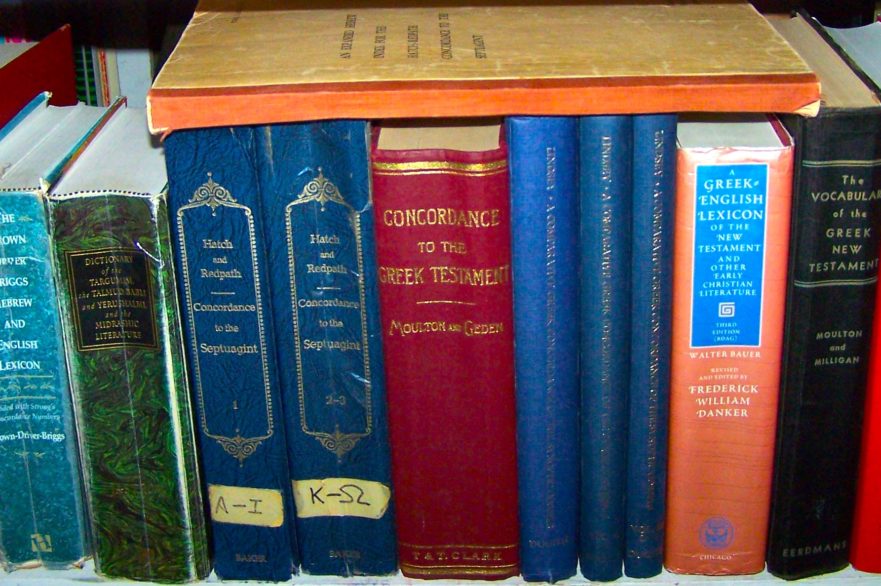
Jerusalem Perspective has made three foundational resources for the study of the Synoptic Gospels freely available to the public via the Internet Archive.
The Priority of Luke: An Exposition of Robert Lindsey’s Solution to the Synoptic Problem
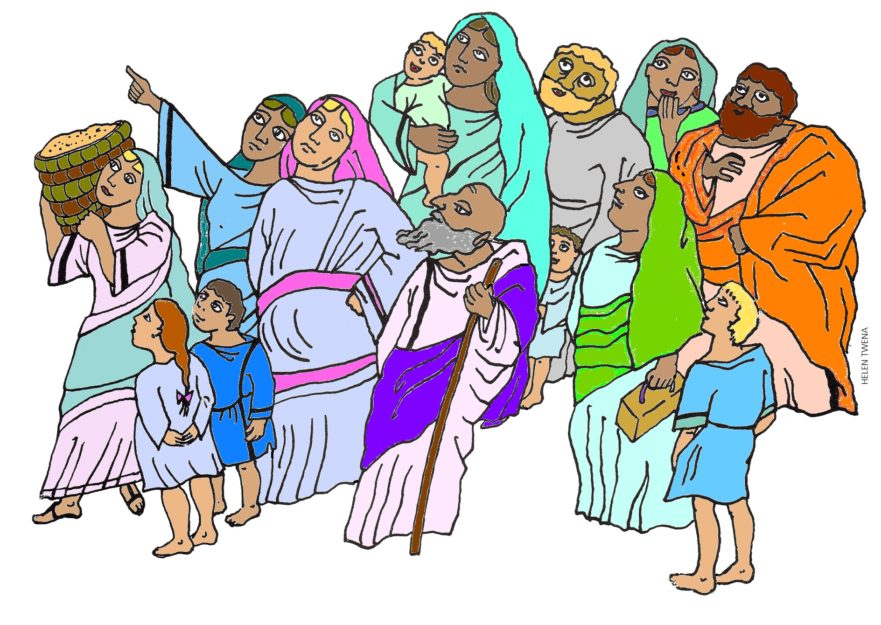
The pioneering work of Robert L. Lindsey deserves more serious consideration from the scholarly community than it has heretofore received.
LOY Excursus: The Dates of the Synoptic Gospels
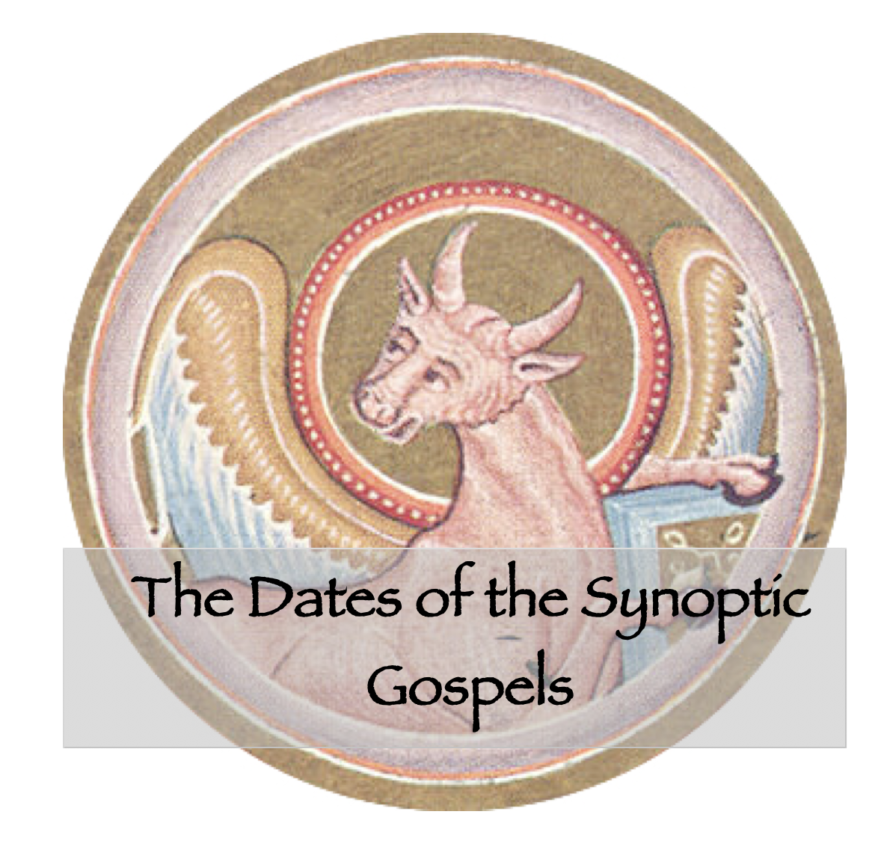
Reassessing the dates of the Synoptic Gospels in light of Lindsey’s hypothesis.
Mustard Seed and Starter Dough Parables

Jesus used the Mustard Seed and Starter Dough parables to demonstrate that the Kingdom of Heaven is a living and active presence that is increasing within the realm of human experience.
LOY Excursus: Criteria for Distinguishing Type 1 from Type 2 Double Tradition Pericopae

How to tell the difference between the two types of Lukan-Matthean Double Tradition pericopae, and what the distinction can tell us about Luke’s pre-synoptic sources.
What Robert Lindsey’s Theory Explains
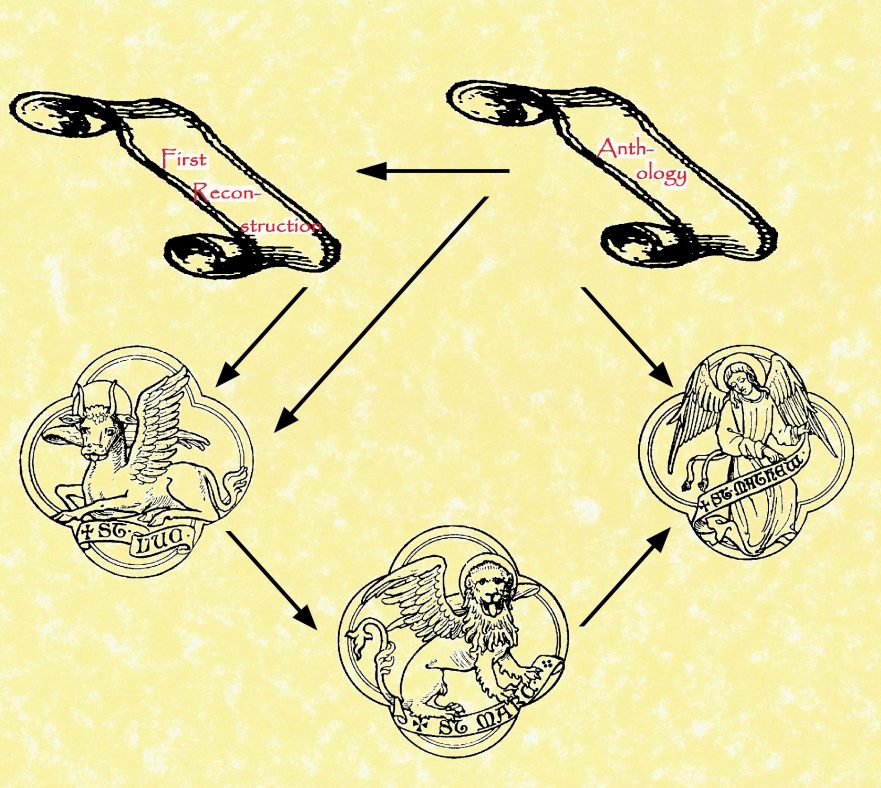
A video presentation discussing how Lindsey’s solution to the Synoptic Problem is able to explain certain phenomena we observe in the Gospels of Matthew, Mark and Luke.
Friend In Need Simile

Is God asleep, oblivious to our prayers? Is he a grouch, unwilling to respond to our pleas? In the Friend in Need simile Jesus instructed his disciples that the grounds for confident prayer is the character of their good and trustworthy God.
Persistent Widow Parable
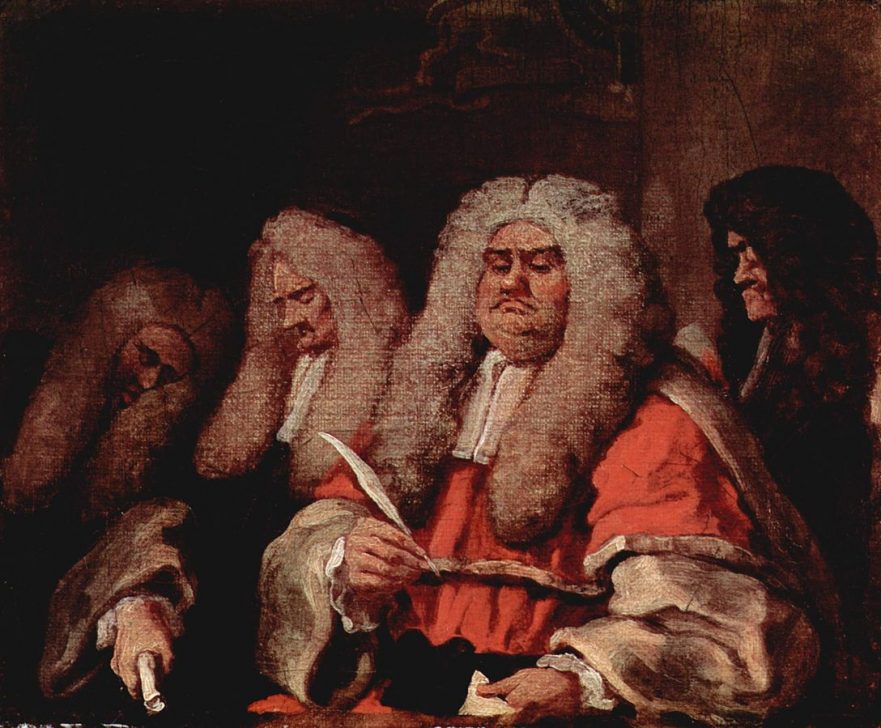
In what way is God similar to a crooked judge? Do believers have to pester God into action? Explore questions such as these in the LOY commentary on the Persistent Widow Parable.
Yeshua’s Discourse on Worry
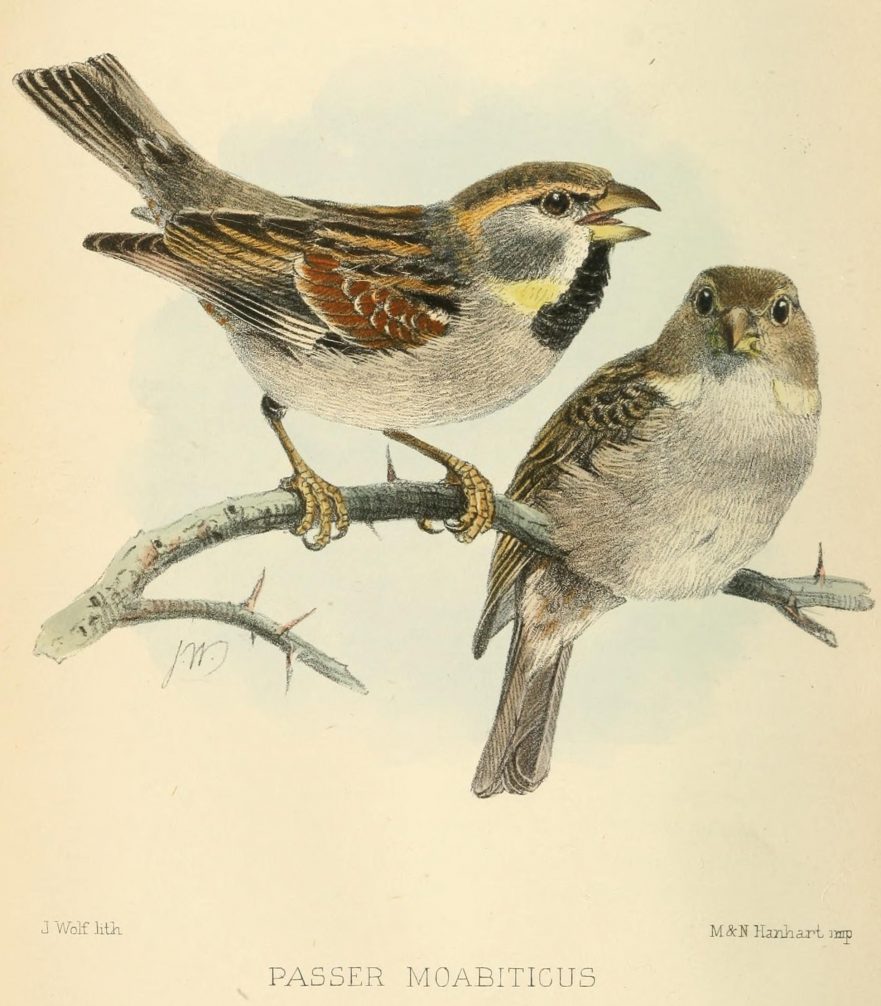
In Yeshua’s Discourse on Worry Jesus confronted one of the most serious concerns of the disciples: how would their basic needs be met now that they had given up their possessions and livelihoods in order to itinerate full-time with Jesus?
Praying Like Gentiles
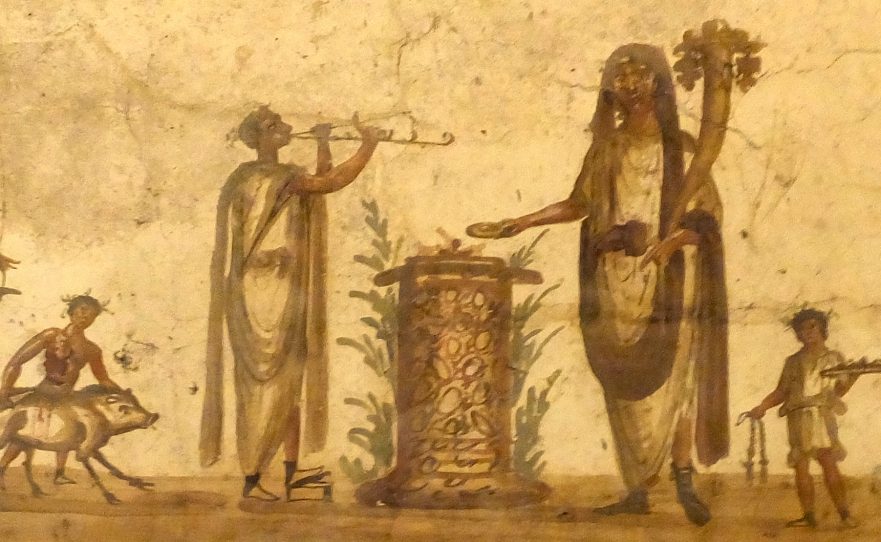
What can Jesus’ warnings against praying like Gentiles teach us about Jesus’ relationship to Second Temple Judaism and his attitude toward non-Jews?
Lost Sheep and Lost Coin Similes
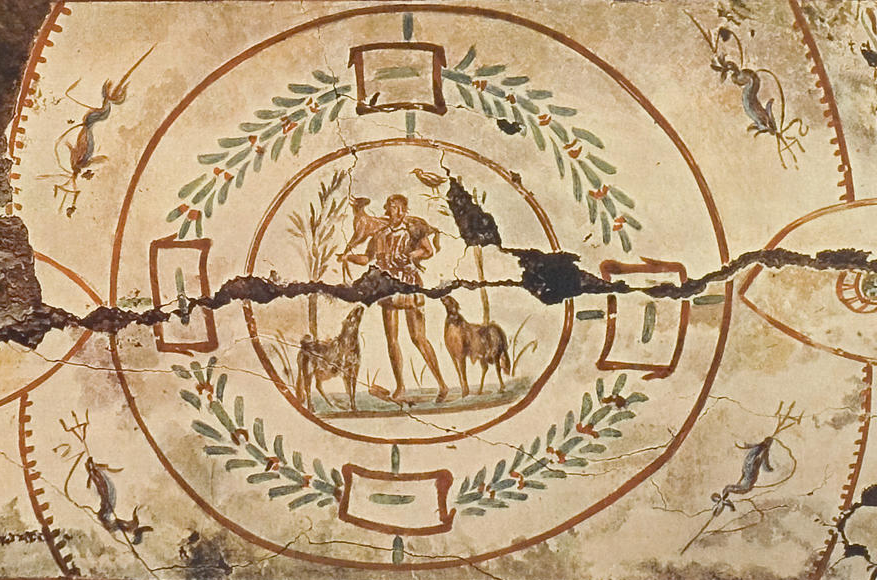
With the Lost Sheep and Lost Coin similes Jesus explained to his critics that he ate and drank with “sinners” because God rejoices when a person repents. God wants his friends—including Jesus and Jesus’ critics—to join him in the celebration.
Call of Levi
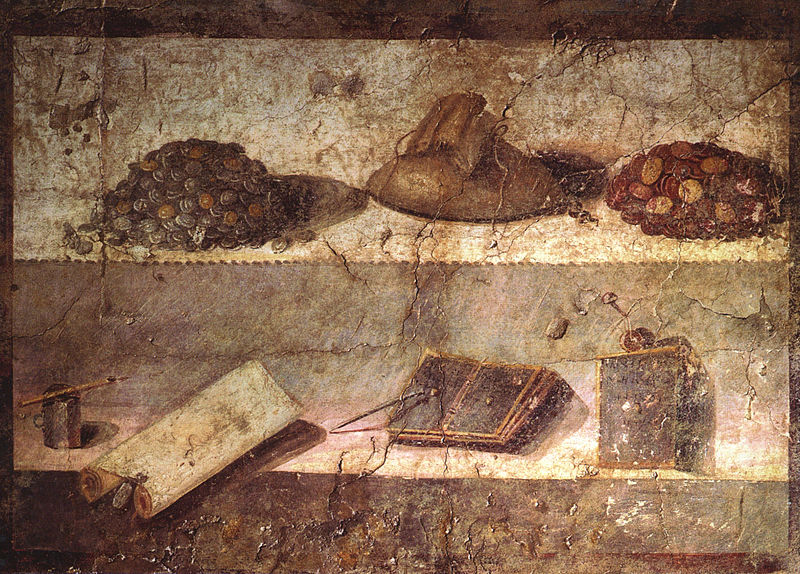
In the Call of Levi story we learn about Jesus’ attitude toward sinful persons and about his relationship with the Pharisees.
Mysteries of the Kingdom of Heaven
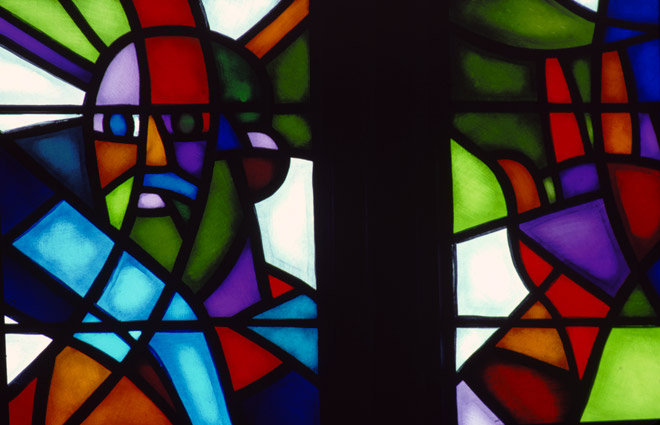
Did Jesus offer a rationale for teaching with the aid of story parables in this pericope, or does the Mysteries of the Kingdom of Heaven saying celebrate the dawning of the new age of redemption?
LOY Excursus: Criteria for Identifying Separated Twin Parables and Similes in the Synoptic Gospels
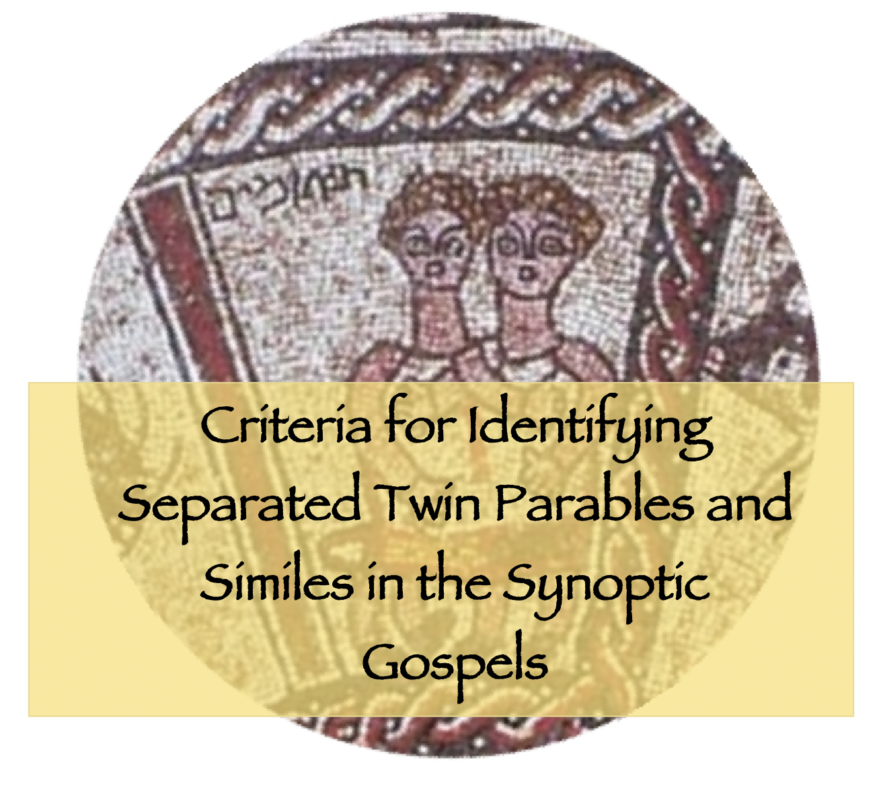
Even casual Gospel observers notice that some of Jesus’ parables and similes come in pairs that resemble one another so strongly that they might be regarded as twins. But how does one determine which parables and similes truly are twins, and which might just bear a family resemblance? In this post David N. Bivin and Joshua N. Tilton suggest five criteria that authenticate parables and similes as true twins.

